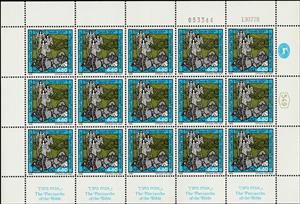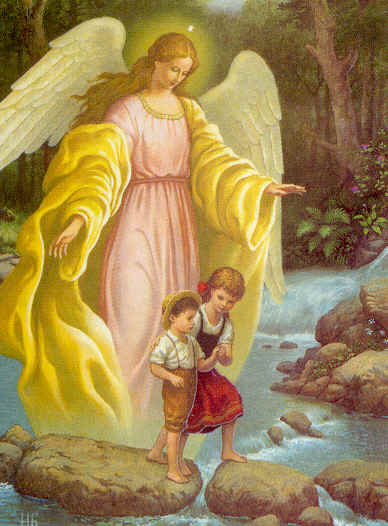Full Pane: Jacob - The Patriarchs of the Bible (Israel 1978)
Jacob - The Patriarchs of the Bible (Israel 1978)
22 August (Israel ) within release Festival 1978 goes into circulation Full Pane Jacob - The Patriarchs of the Bible face value 15*6.60 Israeli lira
| Full Pane Jacob - The Patriarchs of the Bible in catalogues | |
|---|---|
| Colnect codes: | Col: IL 1978.08.22-03b |
Full Pane is horizontal format.
Also in the issue Festival 1978:
- Stamp - The Patriarchs of the Bible face value 1.10;
- Stamp - The Patriarchs of the Bible face value 5.20;
- Stamp - The Patriarchs of the Bible face value 6.60;
- Stamp with Collectible Margin - Abraham - The Patriarchs of the Bible face value 1.10;
- Stamp with Collectible Margin - Isaac - The Patriarchs of the Bible face value 5.20;
- Stamp with Collectible Margin - Jacob - The Patriarchs of the Bible face value 6.60;
- Full Pane - Abraham - The Patriarchs of the Bible face value 15*1.10;
- Full Pane - Isaac - The Patriarchs of the Bible face value 15*5.20;
- Full Pane - Jacob - The Patriarchs of the Bible face value 15*6.60;
Full Pane Jacob - The Patriarchs of the Bible it reflects the thematic directions:
In Abrahamic religious traditions (such as Judaism, Christianity, and Islam) and some sects of other belief-systems like Hinduism and Buddhism, an angel is a heavenly supernatural or spiritual being. In monotheistic belief-systems, such beings are under service of the supreme deity (i.e. God).
Abrahamic religions often depict angels as benevolent celestial intermediaries between God and humanity. Other roles include protectors and guides for humans, such as guardian angels and servants of God.[3] Abrahamic religions describe angelic hierarchies, which vary by religion and sect. Some angels have specific names (such as Gabriel or Michael) or titles (such as seraph or archangel). Malevolent angels are often believed to have been expelled from Heaven and called fallen angels. In many such religions, the Devil (or devils) are identified with such angels
Goliath (/ɡəˈlaɪəθ/ gə-LY-əth) was a Philistine giant in the Book of Samuel. Descriptions of Goliath's immense stature vary among biblical sources, with texts describing him as either 6 ft 9 in (2.06 m) or 9 ft 9 in (2.97 m) tall. According to the text, Goliath issued a challenge to the Israelites, daring them to send forth a champion to engage him in single combat; he was ultimately defeated by the young shepherd David, employing a sling and stone as a weapon. The narrative signified King Saul's unfitness to rule, as Saul himself should have fought for the Kingdom of Israel
A festival is an event celebrated by a community and centering on some characteristic aspect or aspects of that community and its religion or cultures. It is often marked as a local or national holiday, mela, or eid. A festival constitutes typical cases of glocalization, as well as the high culture-low culture interrelationship. Next to religion and folklore, a significant origin is agricultural. Food is such a vital resource that many festivals are associated with harvest time. Religious commemoration and thanksgiving for good harvests are blended in events that take place in autumn, such as Halloween in the northern hemisphere and Easter in the southern.
The New Year is the time or day at which a new calendar year begins and the calendar's year count increments by one. Many cultures celebrate the event in some manner. In the Gregorian calendar, the most widely used calendar system today, New Year occurs on January 1 (New Year's Day, preceded by New Year's Eve). This was also the first day of the year in the original Julian calendar and the Roman calendar (after 153 BC)




